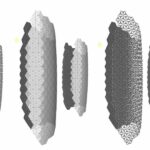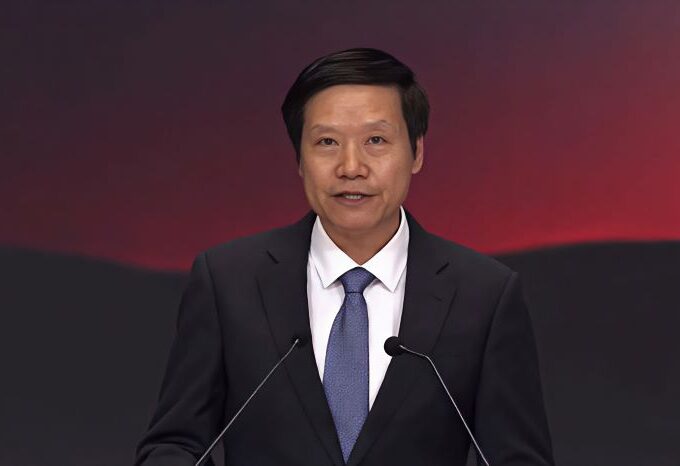Japanese automaker Nissan Motor Co. officially announced Tuesday that its next-generation Leaf electric car will be built at its Sunderland plant in the United Kingdom. The decision not only solidifies Nissan’s long-term commitment to the U.K. market but also heralds another major advancement in the company’s European electrification transition strategy.
UK plant becomes European electrification hub
Nissan said the new Leaf will be based on its latest electric platform, the ‘EV36Zero’, and will be assembled on existing electric vehicle production lines in the UK. “We are confident in our Sunderland plant, with its advanced manufacturing capabilities and skilled workforce.” Guillaume Cartier, President of Nissan Europe, said in a press release, “The UK will be an important pivot point for us to position ourselves for the future as the global automotive industry accelerates its transition to electrification.” The Sunderland plant has been Nissan’s largest manufacturing site in Europe since it opened in 1986. Since 2011, the plant has been producing the Leaf electric vehicle, making it one of the world’s first large-scale sites to mass-produce electric vehicles. To date, more than 250,000 Leaf vehicles have been produced at the plant, which has accumulated a wealth of experience in EV assembly. The introduction of the new Leaf program will further enhance Sunderland’s position in Nissan’s global strategy. It is reported that Nissan plans to invest more than 1 billion pounds in the project for equipment upgrades, battery assembly line modification, and localization of the supporting supply chain.
Compliance with the UK’s “2035 Ban”
The UK government plans to ban the sale of new gasoline and diesel vehicles from 2035, encouraging the market to shift to zero-emission models. Nissan’s decision to keep production of the new Leaf in the UK is a positive response to this policy. Nissan says the new Leaf will feature a longer range, faster charging, and smarter driver assistance systems than the current model, while keeping the price affordable for the mass consumer segment. The car will go on sale in 2026 and will focus on the family car and urban commuter markets. Kemi Badenoch, the UK’s Minister for Business and Trade, welcomed Nissan’s decision, “Nissan’s investment in the UK is a huge vote of confidence in our automotive manufacturing capabilities and shows that the UK remains an important part of the global electric vehicle industry.” It is understood that the UK government will provide partial financial subsidies and policy support for the project, including green energy procurement concessions, EV infrastructure construction assistance, and other measures.
Promoting industrial chain localization
To complement Leaf production, Nissan will also expand the battery plant it built with partner Envision AESC (China). The battery plant, located near Sunderland, already supplies battery packs for models such as the Nissan Ariya. The next-generation Leaf will be equipped with higher-capacity solid-state batteries, and the battery range may exceed 500 kilometers. Nissan hopes to reduce costs, improve efficiency, and reduce its supply chain carbon footprint by integrating local battery production with vehicle manufacturing. “This is an important part of our ‘carbon neutral’ goal.” Hideyuki Sakamoto, Nissan’s global head of manufacturing, emphasized. In addition, Nissan also plans to attract more local parts suppliers to participate in the production program of the new generation of Leaf. So far, more than a dozen British companies have entered the initial supplier list, covering thermal management systems, motor control modules, and on-board charging devices, and other areas.

Geopolitical and market games under the “stay in the UK” move
After Britain’s exit from the European Union, many international car companies will shift their European business to EU member states, such as Honda’s withdrawal from the British market, and Ford transferred part of its production capacity to Germany. Nissan is the opposite, choosing to deepen the manufacturing layout in the United Kingdom. Analysts believe that Nissan’s move, in addition to the recognition of Sunderland’s existing production capacity and talent, is also closely related to the special incentives provided by the British government for the electric vehicle industry. The UK Treasury is offering a local EV purchase subsidy of up to £2,500 from 2024, which further enhances the attractiveness of EVs in the local market. David Bailey, Director of AutoAnalysis, an automotive industry research organization, said, “Nissan’s decision to keep production of the Leaf in the UK is a shot in the arm for the UK automotive industry, and demonstrates that the UK will still have the ability to maintain the competitiveness of its automotive manufacturing after Brexit.”
Increasing competition in the global market
Against the backdrop of intensifying global competition in electric vehicles, Nissan’s new Leaf faces fierce challenges from Tesla Model 3, Volkswagen ID.3, BYD Dolphin, and other models. Nissan said the new-generation Leaf will incorporate the brand’s more than a decade of experience in EVs, with comprehensive upgrades in reliability, safety, and user experience. “We will not pursue a mere parameter race.” Nissan’s head of product planning said, “Our goal is to create a practical EV that is suitable for mainstream families, has smart connectivity, is reliable and easy to drive.” Nissan has now confirmed that it will be the first to release the new Leaf in the European market in the fourth quarter of 2025, followed by the Japanese and North American markets.
Conclusion
Nissan’s assignment of the production of the next-generation Leaf EV to its Sunderland plant in the U.K. not only conveys confidence in the local U.K. industrial chain but also highlights its steady pace in its global electrification strategy. On the road to mainstreaming electric vehicles, how veteran automakers strike a balance between cost, technology, and policy will be the key to future market competition. The move to “stay in the UK” is undoubtedly an important step for Nissan in the electrification race.













Leave a comment